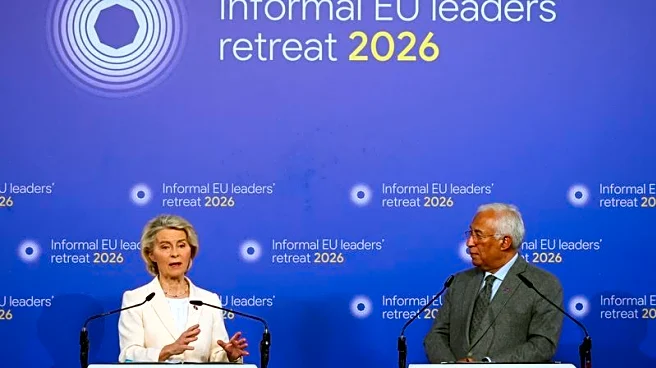Rapid Read • 8 min read
A new Netflix documentary series titled 'Fit for TV: The Reality of The Biggest Loser' has sparked discussions about the controversial reality show 'The Biggest Loser.' Two former contestants from Alabama, Olivia Ward and Hannah Curlee Young, have spoken out in support of the show. The sisters, who competed in Season 11, lost significant weight and have praised the program for its positive impact on their lives. However, the documentary features other contestants who criticize the show for its extreme weight-loss methods and alleged negative effects on their health. The series has quickly gained attention, landing on Netflix's Top 10 list.
AD
The documentary's revelations about 'The Biggest Loser' highlight ongoing debates about the ethics and effectiveness of reality TV weight-loss programs. While some contestants, like Ward and Curlee Young, view their experience positively, others report long-term health issues and questionable practices by the show's producers. This controversy raises important questions about the responsibility of reality TV shows in promoting healthy lifestyles and the potential exploitation of participants for entertainment purposes. The differing perspectives of former contestants underscore the complex impact such programs can have on individuals and public perceptions of weight loss.
The documentary may prompt further scrutiny of reality TV weight-loss programs and their practices. It could lead to calls for more transparency and ethical standards in the production of such shows. Additionally, former contestants and producers might engage in public discussions or legal actions to address grievances and defend their positions. The show's legacy and its influence on viewers' perceptions of weight loss and health may continue to be debated in media and academic circles.
The documentary's exploration of 'The Biggest Loser' touches on broader cultural issues, such as societal pressures regarding body image and the portrayal of weight loss in media. It raises ethical questions about the balance between entertainment and the well-being of participants. The show's impact on viewers' understanding of health and fitness, as well as its role in shaping public attitudes towards obesity, are significant considerations that extend beyond the immediate controversy.
AD
More Stories You Might Enjoy












